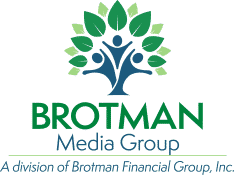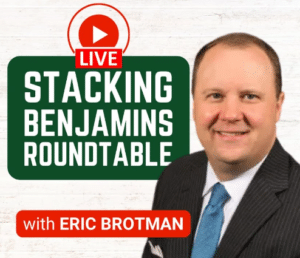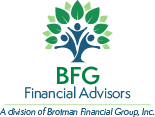[00:00:00] Eric Brotman: This is Eric Brotman, the host of Don’t Retire… Graduate!: The podcast that teaches you how to advance into retirement, rather than retreating, welcome to office hours, where we answer listeners’ questions about personal finance, retirement readiness, and more. We received a question from Nate who asked, what would you consider a red flag when talking to a financial advisor?
Wow, Nate, that is a great question. And I’m so glad that you brought that to our attention. I would like to share with you that there are dozens of red flags that when you’re interviewing. A prospective financial advisor you want to look out for. And some of these objectively are red flags and some of them are more subjective.
So you know, some of this may be, may come down to your comfort level, but in general, When you talk to a financial advisor, particularly when you’re brand new and you’re meeting a new financial advisor, that person should be completely interested and curious about learning about your life, your life, your work, your family, what’s important to you.
It should absolutely not be about them. So if you sit down with someone and they say, guess what, we can get you a fabulous return in the market, run. Because at the end of the day, most of those kinds of things are totally commoditized. There is no value in that. You can get that from a computer. We’ve done, we’ve done shows about robo-advisors and all of this before. You can get that any place. What you’re really looking for is someone who will not only be an empath and be a sounding board, but someone who’s going to be an advocate for you. Someone who’s going to get to know you well enough to help you make the big decisions in life and to help guide you on your path to financial independence and ultimately to creating a legacy.
So the first thing I would say is that the financial advisor, it’s a red flag if they’re talking about themselves, rather than talking about you and what’s important to you. Second thing I would say is it’s always a red flag to me when someone is in a proprietary financial company. If someone’s an employee of a financial firm, that doesn’t mean that they can’t do a great job and be terrific financial advisors.
It means that there’s an inherent potential conflict of interest between their relationship with their employer, the firm, and their client, you. So that’s not to suggest that you can’t work with these folks, but it is to suggest that if you hear anything that starts to sound like proprietary home cooking, the, we believe that, or our product does this, or if it starts to sound like a pitch and a sales pitch at that, that’s another red flag.
Absolutely something to avoid. And the third, and I’m going to leave this at three, even though there’s 20. And a lot of them actually are in the book, don’t retire graduate. So if you pick up a copy, there’s a full interview with financial advisors and all the kinds of questions to ask. But the third red flag, Nate, that I, that I would say is any financial advisor who is in more of a hurry to, to have your, your relationship begin, than you are.
And that doesn’t mean it’s bad to have a sense of urgency or a sense of recognizing that something’s important, but at the end of the day, this is your money. It’s your plan. It’s your financial life and you need to be comfortable. And the timing has to be yours. Now I understand sometimes there’s a healthy level of prodding to get things done.
Some people are procrastinators. I get that. But you should set those parameters with a, with a financial advisor, you should say, yes. I’m, you know, I work a hundred hours a week and I’m not easy to get, so go ahead and harass me if you need something. That’s fine. That’s your choice. But if you’re in a situation where they’re saying you got to do this soon, you get one now, it’s almost gone kind of thing, or you’re gonna miss the greatest opportunity, yada, yada, I would stay as far away from that as you can, because while there are certainly deadlines, there are December 31st deadlines. There are tax filing deadlines. Some of them are based on your age. Deadlines exist. But most of them, most of them are not the kind of things that are going to force you to take action immediately when you meet somebody, especially for the first time.
So I hope this has helped you Nate. And when you’re, when you’re interviewing a financial advisor, you really first need to know the right questions to ask, and then you might want to know what some of the bellwether answers might be.
The one size never fits all. So, you know, I would certainly say that the, the right advisor for you would be different than the right advisor for your next door neighbor or your mom and dad or, or somebody else. So find someone you’re comfortable with, but those are a couple of red flags to avoid. So thanks for your question, Nate.
I appreciate that. If you’d like to send us a question, which we might answer in a future episode of office hours post it on our Facebook page or tweet us at @BrotmanPlanning. If you like what you hear, please subscribe to our podcast and leave a review on apple podcasts or wherever you listen to your favorite shows.
Please also check out our books, workbooks and online financial literacy resources at brotmanmedia.com. Thanks for coming to office hours. Be sure to tune in for new content every Thursday. For now, this is your host, Eric Brotman and reminding you, don’t retire. Graduate.







